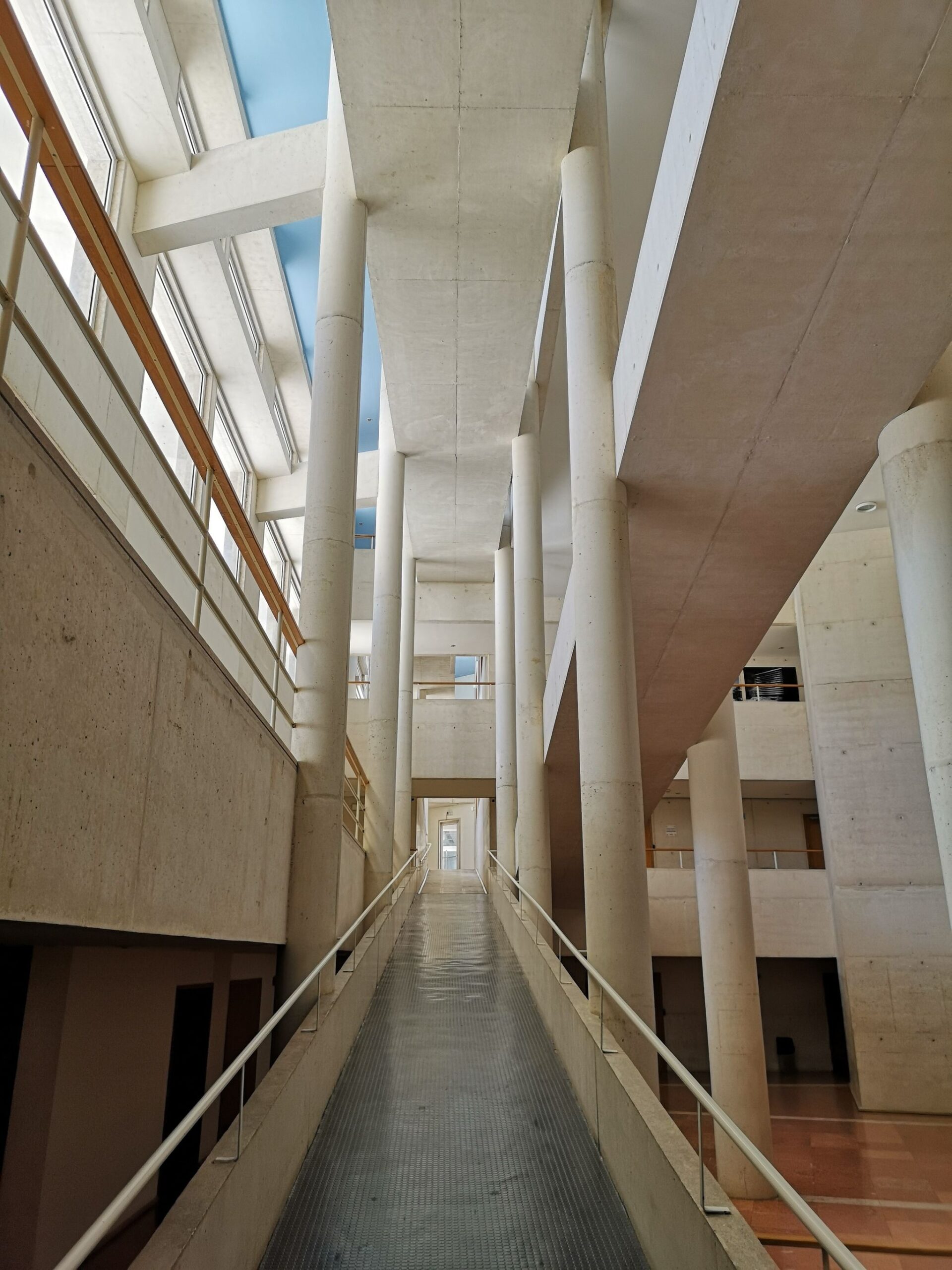The University Institute of Lisbon (ISCTE) was awarded the first FISU Healthy Campus certification. We sat down with ISCTE University Rector and Former Minister of Education of Portugal, Professor Maria de Lurdes Rodrigues, to see just what it takes to become FISU Healthy Campus certified.
 LAUSANNE – Universities worldwide are moving full steam ahead when it comes to enhancing the aspects of wellbeing for students and the campus community at large. Identifying the challenge of reversing the well-established trend of young adults compromising their health during their academic careers, the FISU Healthy Campus is the federation’s actions to help universities provide a positive impact on the lives and lifestyles of university students around the world.
LAUSANNE – Universities worldwide are moving full steam ahead when it comes to enhancing the aspects of wellbeing for students and the campus community at large. Identifying the challenge of reversing the well-established trend of young adults compromising their health during their academic careers, the FISU Healthy Campus is the federation’s actions to help universities provide a positive impact on the lives and lifestyles of university students around the world.
Officially launched May 2020, the FISU Healthy Campus programme has already seen 35 universities from 24 countries register—a number FISU expects to grow exponentially as the programme continues to take shape. In the first few months, the programme is helping universities to provide additional access and opportunity to the physical activity, health and nutrition daily on campus.
The University Institute of Lisbon (ISCTE) is one of these universities and today was the first to obtain the FISU Healthy Campus certification. To see what it took to qualify for the certification, we sat down with Rector of the University Institute of Lisbon, Maria de Lurdes Rodrigues. The former Minister of Education of Portugal takes us through what it took to obtain the certification and the daily running of the programme on campus.
ISCTE is the first university that reached the required number of criteria for certification already, a certification level that you may even improve upon in the next six months. What do you think is the main reason you were able to achieve this so quickly?
We are very proud of this achievement. ISCTE is a young university – we’ve been in operation for less than 50 years – in the centre of Lisbon city, wherein the last few years we were able to create new projects and programmes such as improving sustainability in all we do or delivering sports services to our community. We work based on ISO Quality Management Standards, which helps to plan, organise and set goals and in several aspects of our activities.
With about 10,000 students, we can maintain a positive and informal relationship between students, professors, researchers and staff. We are strongly committed to the goal expressed on our Strategic Plan 2018-2021 of increasing wellbeing on campus, and giving our students, professors, researchers and staff members a fantastic experience.
What did it take to ensure you met the qualifying criteria for the FISU Healthy Campus label? In terms of human resources, time, planning etc.?
In this first phase of the FISU Healthy Campus programme, we collected all good practices we already have from different services, departments and schools. Our sports services office, working closely with the Student Union and the Quality and Sustainability office, was able to answer positively to many of the criteria. The strengths were already there; we only had to make them show.
What ongoing programmes do you already have in place that contributed to the FISU Healthy Campus certification?
Due to the university’s integrated quality system, we already achieved several criteria related to leadership, management and sustainability issues. It is imperative to say that ISCTE is also strongly committed to the process of continuously improving quality systems and encompassing all our activities with the United Nations (UN) Sustainable Development Goals (SDG). For example, all of our schools and research units already categorise their publications and courses with SDGs, as FISU’s Healthy Campus programme stands for.
Our welfare services (Ação Social) also works hard in the fields related to health and mental health support.
The University Sport Unit, created in 2018, also brought new ideas and empowered our student’s union sports program. Together, they were able to plan sports activities for everyone – from on-campus fitness to competition.
How do you plan on maintaining these programmes? 
We have a long way to go; we must admit because we want to improve in several areas where we are still not so good at answering all the 100 indicators of the certification programme. In fact, the certification made us understand which directions we must continue developing our campus in a better and positive way.
Our next steps will be increasing our coordination and leadership related to the FISU Healthy Campus programme and assigning more resources to its management and development. A wellbeing map will be achieved in the next academic year, so we can show clearer information and create awareness of our members. It also increases extra motivation for all our service offices and schools to pursue the wellbeing at our campus.
What is your long-term vision for the ISCTE campus?
ISCTE is living exciting moments. The campus will physically grow in the next couple of years, with a clear vision to develop our research capability, internationalisation potential and cooperation with the society.
We will work hard in increasing what is our actual strength: a strong relationship between all our community members. Our campus will be even more sustainable and capable of adapting and answering the expectations of the next generations.
How do you see your research areas of sociology and public policy fitting into the concept of the FISU Healthy Campus?
We try to have all our courses adapted to social challenges. In fact, we regularly work with several organisations/companies and develop research to understand better the new topics we must teach and research.
For example, during the COVID-19 situation, we developed several studies to understand better the impact of working at home. We analysed media and social media to conduct “fact-checking” and inform the population in a better way. With several governmental and business entities, we also organised debates and research on how to get out of the pandemic situation in a better way.
According to you, how will the FISU Healthy Campus programme help encourage the student population to adopt a healthy lifestyle?
The programme will help all of us to fulfil the wellbeing agenda and to have that purpose in mind as we already have with the UN SDGs. It will also help ISCTE organise and coordinate efforts already in place, to plan better, to inform clearly and to enable the possibility of adding more activities/programmes for our strategic goals.
Creating more opportunities on our campus and giving clear information will help students and staff add more healthy choices to their lives.
How do you address those students on campus who do not usually participate in sports activities?
This academic year, for the first time, we are asking all our community members about their sports practices. That data is very important to adapt our sports programme to their expectations so that the programmes can answer their needs. Portugal is one of the EU members with lower sports activities (Eurobarometer 2018), and we think that our university has a role in changing this reality.
In your opinion, why should more universities take part in the FISU Healthy Campus certification?
The experience during the studying years can be one of the best experiences of a lifetime. We are responsible for making this period positive for everyone and for creating more opportunities to change the world while enabling the future.
This programme is very interesting because we go deeper and take notice of what we do, what we don’t do and where we really need to improve. With its 100 criteria, it also clarifies what resources we must reserve for these goals.
 ISCTE Rugby Sevens Team (Photo credit: FADU)
ISCTE Rugby Sevens Team (Photo credit: FADU)
The ISCTE, now known for its FISU Healthy Campus certification, is also home to the national university rugby sevens team champions. They went undefeated at the National University Rugby Sevens Championship held in April 2019, where many of their university players are also currently playing for Portugal’s national rugby team. With these existing achievements and rapidly growing sports culture at the university, the ISCTE looks ahead to bringing sport, wellbeing and campus life into one, leading the way for future universities looking ahead to the FISU Healthy Campus certification.

